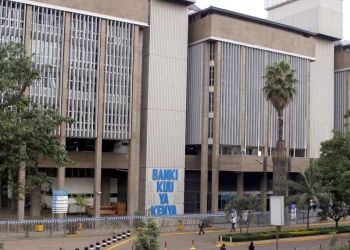Suppose you have made the wise decision of saving and investing for your future. Where would you put your money? In a Co-operative Society or a Savings and Credit Co-operative Society? Maybe both? Before deciding where to put your finances, it is important to understand the difference between the two. Co-operative Societies and Savings and Credit Co-operative Societies (SACCOs) are often confused by some people and used interchangeably. However, they are different from each other. While a co-operative promotes the welfare and economic interests of its members and is open-ended in its operations, a SACCO is limited to holding savings and providing credit to its members. Members of SACCOs collect financial resources together and borrow from them according to their shares.
In Kenya, co-operative societies are vastly distributed across agricultural and non-agricultural sectors like housing and transport. They include members from different groups who come together to promote a common goal.
Here are the advantages of belonging to a co-operative society;
Voluntary and open membership
According to the International Co-operative Alliance, co-operatives are open to all persons who are able to use their services and are willing to accept the responsibilities of membership. They have the right to join the society when they wish and leave it at their own will.
A co-operative society is also open to all persons without gender, social, racial, political or religious discrimination. However, co-operative societies formed for particular groups may limit membership to only those groups. For example, a teachers’ co-operative society may restrict non-teachers from joining in and a farmers’ co-operative society may limit their membership to only include farmers.
Democratic member control
Co-operatives are controlled by their members who actively participate in the co-operative’s decisions and policy making. They are generally managed by a committee elected by the members at annual general meetings.
In co-operatives established by individuals, members have equal voting rights where each member is entitled to only one vote regardless of the number of shares they hold.
Economic participation by members
Members contribute equitably and control the capital of the co-operative. They are entitled to receive limited compensation on the capital they subscribe as a condition of membership. They can allocate surpluses to develop the co-operative, benefit members in proportion to their transactions with the cooperative and support other activities approved by the members.
Autonomy and independence
Co-operatives have the freedom to act independently to govern themselves and set their own operational rules. They are controlled by their members and if they enter into agreements with other organizations, including governments, or raise capital from external sources, they do so on terms that ensure democratic control by their members and maintain their co-operative autonomy. However, it is important to note that this does not exempt co-operatives from government regulations and laws that govern co-operative societies. In Kenya, co-operatives are governed by the Co-operative Societies Act.
Education, training and information
Co-operatives train and educate their members, elected representatives, managers and employees so that they can contribute to the co-operative’s development. Different co-operatives offer different types of training to their members. There are also specialized training institutions that offer training curriculums which can be adopted by different societies.
Co-operation among co-operatives
Co-operatives co-operate among themselves to support, promote, and develop other co-operatives. They work together through local, national, regional and international structures to strengthen the co-operative movement. An example of this is the Co-operative Alliance of Kenya (CAK) which consists of National Co-operative Organizations (NACOs), Co-operative Unions and Primary Co-operative Societies. Co-operatives also come together on International Day of Co-operatives, ‘Ushirika Day’, to celebrate achievements made by co-operatives and to increase their awareness.
Concern for Community
Co-operatives work for the sustainable development of their communities through policies approved by their members. They are based on the values of self-help, self-responsibility, democracy, equality, equity, and solidarity and contribute to the growth of their communities by investing locally.
Understanding the difference between a co-operative society and a savings and credit co-operative will allow you make a wise decision when it comes to achieving your investments goals. Joining a co-operative society like Safaricom Investment Co-operative means pooling resources to ensure that every member of the society is empowered economically. You can join the co-operative either as an individual member or a group member and enjoy membership benefits like discounted and subsidized prices and priority on products and projects offered.
Email your news TIPS to editor@thesharpdaily.com


















